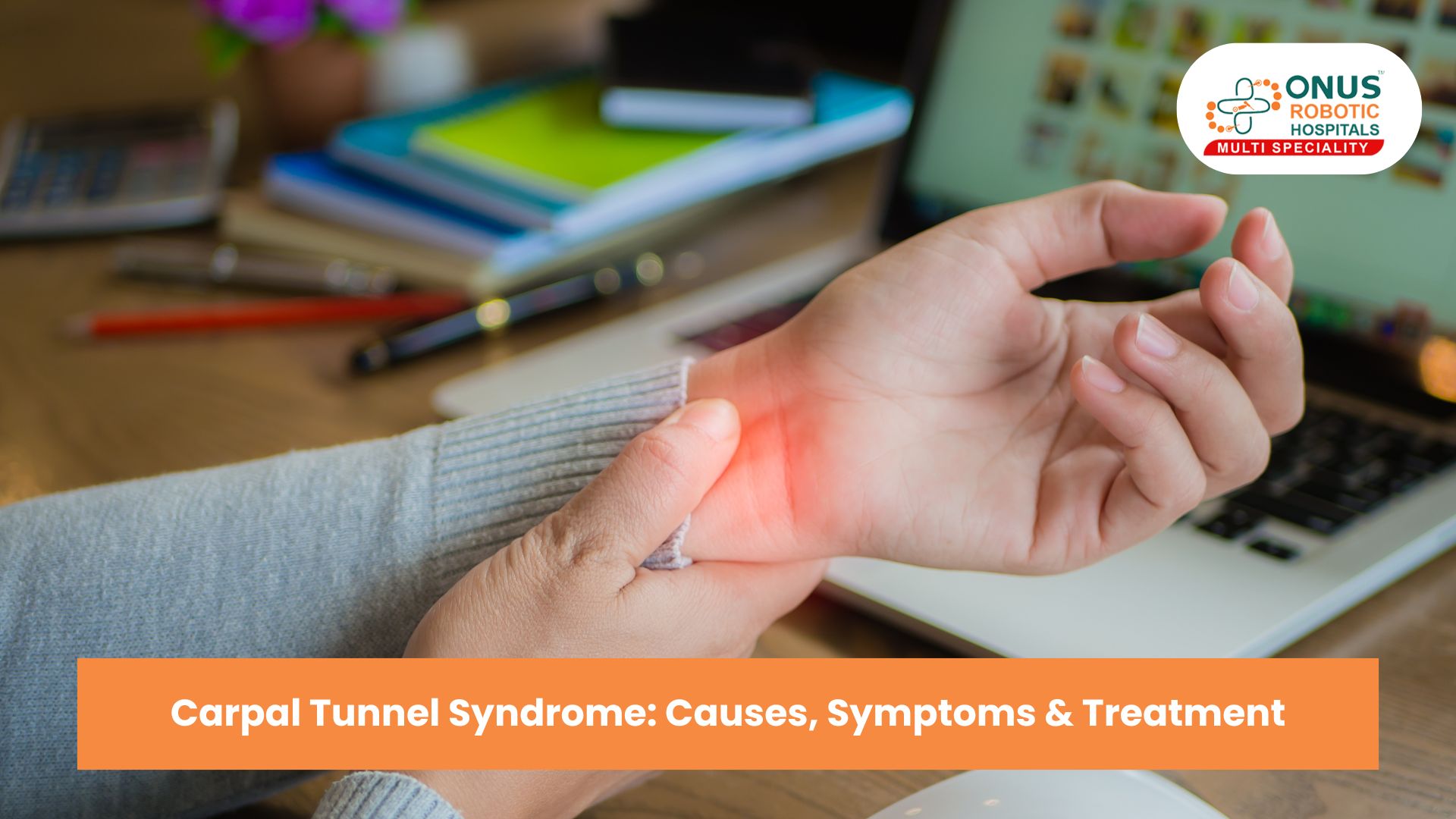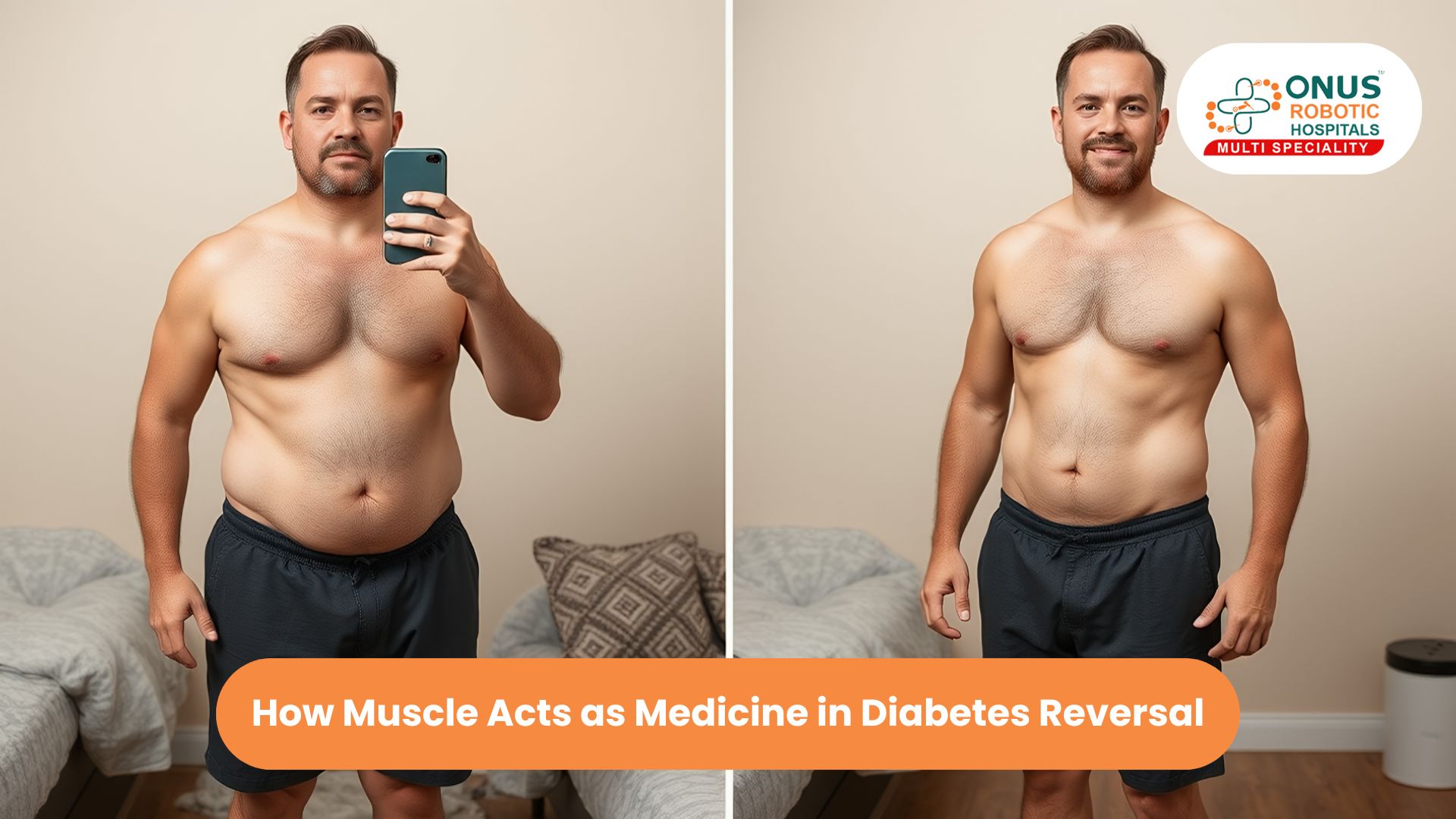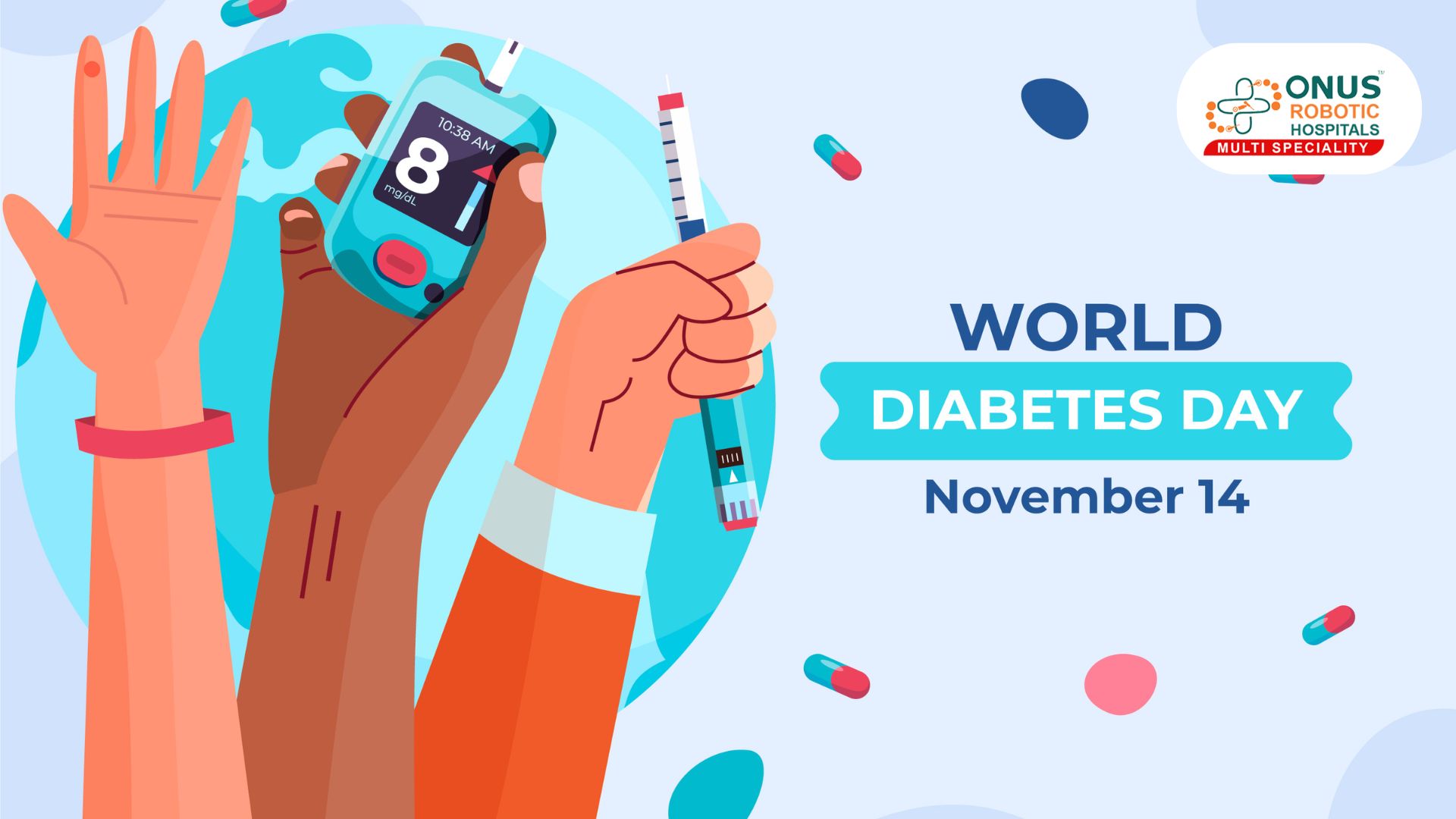Vitamin D3 Deficiency: Symptoms, Causes & Complete Treatment Guide: Dr. Balaraju Naidu, Robotic Orthopedic Surgeon
Vitamin D3—also known as the sunshine vitamin—is essential for strong bones, muscle health, immunity, and overall wellbeing. Unfortunately, over 70% of Indians are deficient, mainly due to indoor lifestyles and low sun exposure. Untreated deficiency can silently lead to bone pain, fatigue, fractures, and long-term health problems.
This blog explains everything you need to know: symptoms, causes, diagnosis, treatment, diet tips, and prevention.
⭐ What Is Vitamin D3 and Why Is It Important?
Vitamin D3 (cholecalciferol) helps your body:
- Absorb calcium and phosphorus
- Maintain strong bones & teeth
- Support immunity
- Improve muscle strength
- Reduce inflammation
- Enhance mental wellbeing
Your body produces Vitamin D3 when your skin is exposed to sunlight.
⚠️ Common Symptoms of Vitamin D3 Deficiency
Vitamin D3 deficiency often shows vague symptoms that are ignored for months. Look out for:
- Persistent fatigue
- Muscle weakness or cramps
- Bone pain (especially back pain)
- Frequent infections
- Hair loss
- Mood changes, irritability, or depression
- Slow wound healing
- Joint stiffness
- Weak immunity
- In children: delayed growth, bone deformities
If these symptoms persist, get your Vitamin D levels checked.
🌥 Major Causes of Vitamin D3 Deficiency
- Limited sunlight exposure
- Working indoors/office lifestyle
- Pollution blocking UVB rays
- Darker skin tone
- Age above 50
- Kidney or liver disorders
- Obesity
- Malabsorption (IBD, celiac disease)
- Low dietary intake of Vitamin D–rich foods
- Pregnancy & breastfeeding
🧪 How Is Vitamin D3 Deficiency Diagnosed?
A simple 25-Hydroxy Vitamin D blood test confirms the levels:
| Vitamin D Level | Interpretation |
| <20 ng/mL | Deficiency |
| 20–30 ng/mL | Insufficient |
| 30–100 ng/mL | Normal |
Your doctor may also check calcium, phosphorus, and parathyroid hormone (PTH) for bone health.
💊 Treatment for Vitamin D3 Deficiency
Treatment depends on severity:
1. High-Dose Supplements
Doctors commonly prescribe:
- Vitamin D3 60,000 IU weekly for 6–8 weeks
- Followed by maintenance dose (1,000–2,000 IU daily)
Do not self-medicate—excess Vitamin D can cause toxicity.
2. Calcium Support
To improve absorption, calcium supplements may be added:
- 500–1000 mg/day depending on age and bone health
3. Sunlight Therapy
- 15–20 minutes of morning sunlight
- Between 9 AM – 11 AM preferred
- Expose arms and legs for best absorption
4. Treating Underlying Conditions
Doctors evaluate for:
- Kidney/liver issues
- Malabsorption
- Thyroid/parathyroid disorders
🥗 Vitamin D–Rich Foods
Though sunlight is the main source, diet helps support levels:
- Egg yolks
- Fatty fish (salmon, sardines, mackerel)
- Fortified milk & cereals
- Mushrooms exposed to sunlight
- Ghee & butter
Vegetarians must be especially careful as natural Vitamin D foods are limited.
🧒 Vitamin D3 Deficiency in Children
Kids need Vitamin D for bone growth and immunity.
Symptoms include:
- Bowed legs
- Frequent infections
- Irritability
- Poor growth
Pediatric supplementation is essential under medical supervision.
👵 Vitamin D3 Deficiency in Women & Elderly
Women (especially after menopause) and elderly adults have higher risk of:
- Osteoporosis
- Falls
- Muscle weakness
- Joint pain
Regular screening and supplementation are recommended.
🛡️ How to Prevent Vitamin D Deficiency
- Spend 20 minutes daily in sunlight
- Include Vitamin D foods
- Do weight-bearing exercises
- Take supplements if recommended by your doctor
- Get Vitamin D tested once a year
🏥 When to Visit a Doctor?
Visit ONUS Robotic Hospitals if you experience:
- Persistent body aches
- Recurrent infections
- Weakness or fatigue
- Back or knee pain
- Suspected bone or vitamin deficiencies
Early diagnosis can prevent fractures, osteoporosis, and long-term musculoskeletal issues.
Vitamin D3 deficiency is extremely common but easily treatable. With proper sunlight, nutrition, and medical guidance, you can restore your levels and protect your bones, muscles, and immune system.






